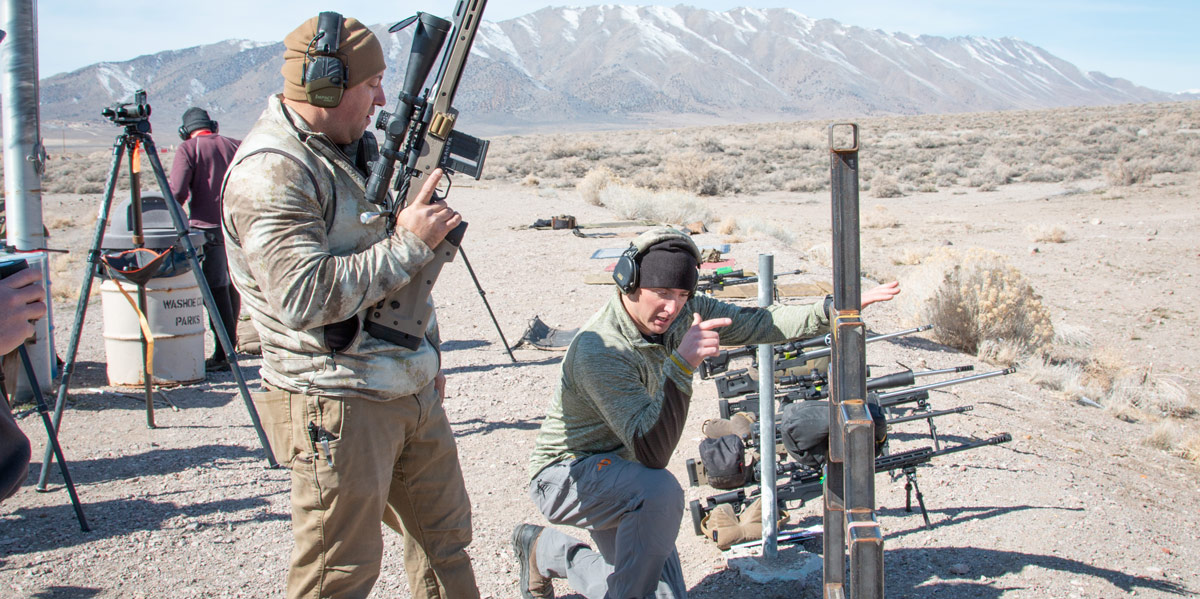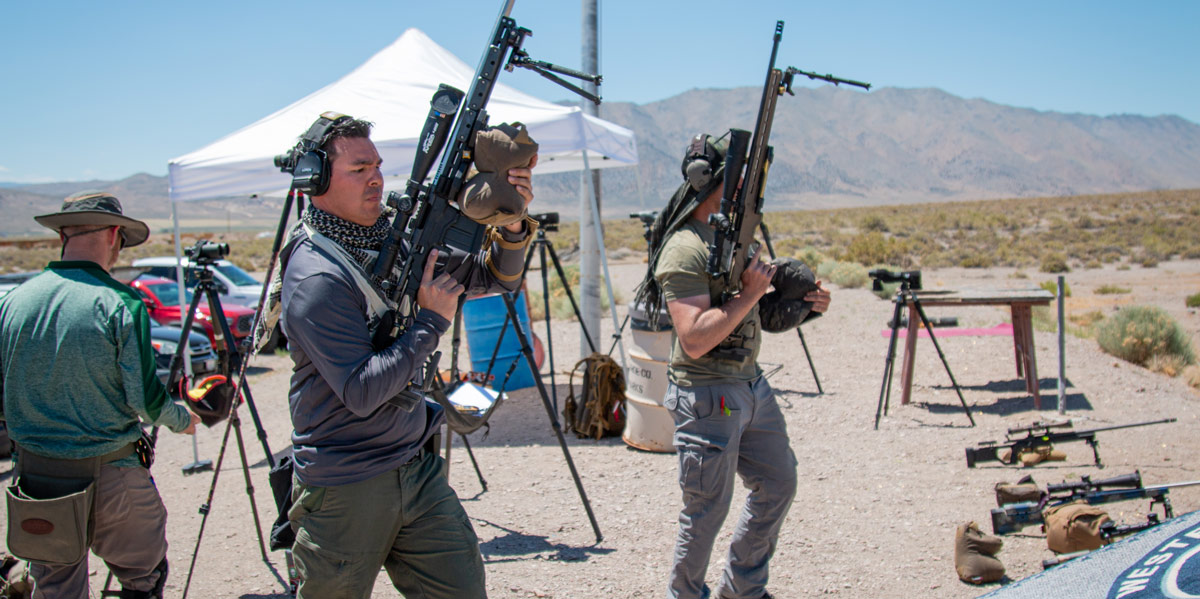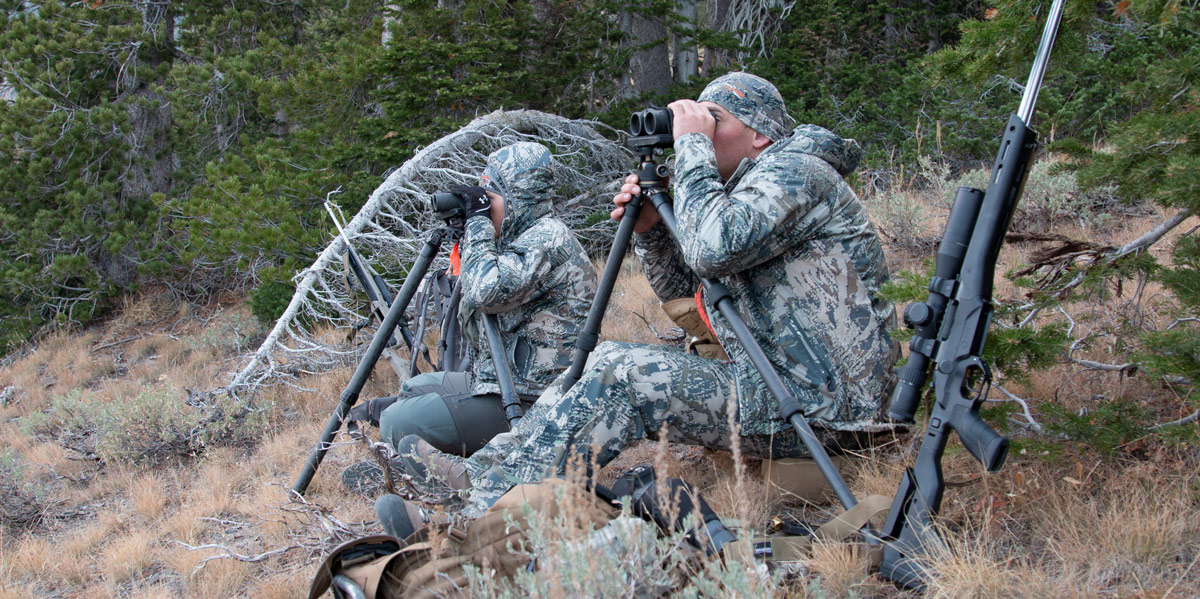Posted by Micah Noe on 2022 Jul 21st
Keep Calm and Shoot On: How to Manage Stress
There are all types of stress, emotional, physical, mental, etc. This article will discuss internal and external stressors and how to cope with or mitigate them while shooting. There are many reasons you may be stressed out when you’re shooting. You could be under the dreaded beep of the timer during a competition, you could be presented with a difficult shot on a “once in a lifetime” hunt, or God forbid, you could be in a fight for your life. Whatever the reason, there are ways to overcome or mitigate that stress to help you achieve your objective.
More: Advanced Mental Management Tips For Shooting PRS
WHAT IS STRESS?
Out of the numerous ways to define stress, I find the World Health Organization’s (WHO) definition to be the most pertinent. It defines stress as “the reaction people may have when presented with the demands and pressures that are not matched to their knowledge and abilities and which challenge their ability to cope.” Shooting aside, it is safe to assume we have all experienced stress on some level or another at some point in our lives.
We should all be familiar with the increase in heart rate, the heavy breathing, the shaking hands, or the tightness in our gut. These conditions and other reactions are more commonly known as the “Flight or Fight Response.” These responses are hardwired into our bodies and are meant to increase our survivability in dangerous situations. Now, is hearing the beep of a timer at the beginning of a shooting stage a “dangerous” or “life-threatening” situation? No, obviously not. Why, then, if it’s not a dangerous situation, does our body respond in the same way? Well, our body cannot distinguish the difference at the most basic level. It recognizes certain conditions have been met, and it responds accordingly. To a certain extent, it is less about the stressor itself and more about how you cope with it.
PHYSICAL RESPONSE TO STRESS
If we look at what can happen to our bodies while under stress, we can assess how it impacts our shooting abilities. You might think an elevated heart rate and an increase in your breathing would be detrimental to shooting. But, with the increased blood flow and dilation of blood vessels, things like mental activity, muscle strength, and oxygenation are all increased. This response helps with cognitive processing, improved vision, and increased strength for muscular action. This can be advantageous for holding your rifle in an awkward position, improving your ability to make a difficult shot during a low-light shooting scenario, or allowing you to push yourself beyond your anaerobic threshold to stay in the fight.
So, while the physiological responses to stress can be detrimental, there are some positive and distinct advantages to the conditions induced by stress. Because of that, eliminating stress isn’t necessarily the “best” answer.
TRAINING THROUGH STRESS
A great way to mitigate the stress associated with a specific task is to conduct Stress Exposure Training. This type of training exposes you to stressors and gives you the skills to execute the assigned task. Seek out positive good training to learn specific skill sets, and practice dry fire, simulations, and visualization. Dry fire and visualization allow the body and mind to get a lot of "perfect" repetitions, which allows you to deal with stress, which can only lead to success. Having solid fundamentals and being prepared for common scenarios or stages allow the body to simply perform.
More: Maximize Performance with Mental Imagery

Proper training can mitigate a lot of stress.
HOW TO MANAGE STRESS
Something I used to try to convey to my students during my time in Combat Rescue is that there is no point in stressing over the things you cannot control. I do my best to also carry this over to my shooting. Think of it as a type of triage. You need to discern what it is you have control over and what actually matters at the time and then mitigate those factors to set yourself up for success in accomplishing your goals. That sounds great in theory, but it usually goes out the door as soon as the “beep” comes from the timer or any other number of stressors. Stay with me here, but rather than a “beep” signaling the start of a stage, what if it was just someone saying “go”? Or maybe the sound of a cow mooing? Would I be equally stressed out? For me, it turns out no. I tried this little experiment with one of my competition shooting mentors and was somewhat surprised at the result. I have built up in my mind that the “beep” from the timer somehow represents, as the WHO stated, “demands and pressures that are not matched to my knowledge and abilities.” That wasn’t necessarily the case when I just heard the word “go.” The point here is that much of what we deem stress is a mental game. As such, so too is its mitigation.
TIPS TO MANAGE STRESS
I tend to break this process into two tasks: filtering and compartmentalization. Filtering through what you can and cannot control is the first step. I cannot control the flow of time. The clock is running as soon as the beep from the timer goes off. I cannot control the conditions I am shooting in. As much as I would love to be able to control the winds and the weather, it’s just not going to happen.
If I am hunting, I have little to no control over how the animal will present itself to me. If this is a life or death scenario, I do not get to dictate other people’s actions and behavior. This is not to say these things do not require my attention or effort, but that there is little to no BENEFIT to stressing over them or letting them “get to me.” Filter out what you can control and drive on.

Focus on the things you can control.
COMPARTMENTALIZING STRESSORS
After you have filtered out what you can control and what you cannot, the next step is to compartmentalize stressors and non-essential inputs. These stressors can include the background noise of the environment, the discomfort of the rock digging into my elbow, the fact the timer is ticking away; and focus on the things I CAN control. I must ensure that my process is deliberate, my fundamentals are applied, and I am focused on my target. Even though I may be breathing heavier, I still wait on that natural respiratory pause to press the trigger. I try to use the physiological responses we discussed earlier to my advantage and enable myself to shoot SOONER, not necessarily faster. In this scenario, a missed shot that was rushed and then a make-up shot takes significantly longer than a deliberate shot that hits its intended point of impact on the first try. Some people try to explain this scenario by simply saying, “slow is smooth, smooth is fast” …this is one of the most cringy phrases in shooting, along with “muscle memory.” To clarify, slow is just slow, and muscles don’t have memory.
TIPS TO COPE WITH STRESS
Besides the mental aspect of mitigating stress, there is also a physical component. Typically, high-stress situations are few and far between, and once the stimuli or source of the stress has subsided, our body returns to a normal state of homeostasis or baseline. Without getting into a discussion about prolonged or frequent stress, it bears mentioning that stress, mitigated or unmitigated, takes a physical toll on the mind and body. When you have massive hormone dumps of adrenaline, increased cardiovascular output, cortisol spikes, etc.,the body has to recover.

Sleep, diet and exercise can lead to a high level of human performance.
Because of this, it is essential to compensate for the physical toll associated with stress. Not crushing a 64oz of energy drink before a match or getting a good night’s sleep instead of drinking alcohol around the campfire before a long day of hunting can be a massive help in your body’s ability to mitigate the physical aspects of stress. Remember to stop and take a few deep breaths, and make sure to eat well. Prioritize sleep and eat foods that do not create a lot of inflammation.
CLOSING THOUGHTS
It’s a bit of an oversimplification and certainly an extreme example, but a proper diet, positive attitude, and a consistent exercise routine can be the difference between surviving a deadly encounter or not going home that day.
In the end, we all face stressful situations in our lives. I certainly do not claim to have THE way to beat stress, but rather A way. Whether the stressor is self-induced or just a variable in our environment, there is a way to process and mitigate the stress to set yourself up for success. Thank you.
ABOUT MICAH NOE
Micah Noe, COTA/L (@jolly914), spent 11 years in the United States Air Force working in Combat Rescue and deployed to Afghanistan 5 times. Micah splits his time between the Healthcare and the Firearms industry. He teaches for Ghost Ring Tactical in San Antonio, NM, and is the CEO and Founder of High Desert Training Partners. He is also the COO for Berserker Creative, a Utah-based media production company specializing in the outdoor/firearms communities.


 CAD
CAD
 Euro
Euro
